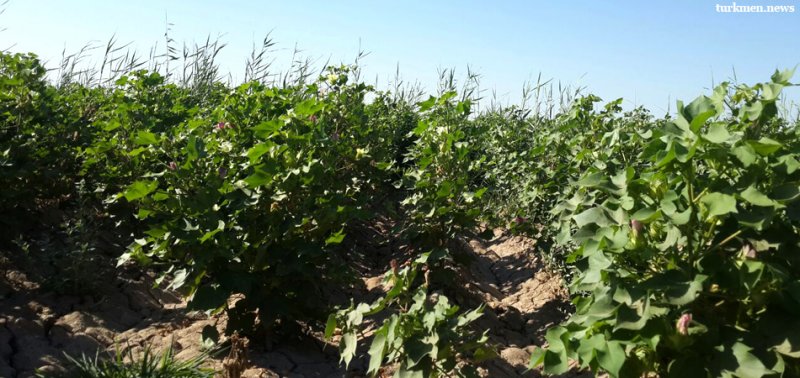Countries
Solidarity campaigns
Slight Relief for Teachers in Eastern Turkmenistan over Cotton Campaign

It’s not clear yet whether the relaxation is the result of an instruction from above or of a change in leadership at the two schools (turkmen.news is deliberately not identifying the schools in order to protect its sources). Although the schoolteachers are convinced that the relaxation in organizing trips to pick cotton is temporary, the reduction in payment for hired pickers really is substantial for them.
“At least we gave a sigh of relief this year,” a teacher at one of the two schools said. “Of course, the reduction in the sum for hiring workers is positive for the family budget: instead of giving away a chunk of our salary to goodness knows whom and for what, we now bring half of that money home.”
At present the teachers at this school are required to pay 15 manats a week plus two Sundays a month for the work of hired cotton pickers. This comes to 90 manats ($5) a month in all. In the other school the weekly sum is 10 manats plus two Sundays a month (60 manats or $3.3 in total). At one of the schools the turkmen.news observer was told that an increasing number of teachers refuse outright to pay for cotton.
“These teachers understand clearly that handing over money for cotton is coercion, just like taking part in the harvest itself, and this is prohibited under both local laws and international regulations to which our country is a signatory,” the source said.
Nevertheless, the demands on other public sector employees to go and pick cotton remain the same. School support staff are forced to go to the cotton fields every day. Cleaners and security guards are too low paid to be able to afford to hire other people, so they go to pick cotton themselves. Just one or two cleaners are left at the schools. They work from morning until late at night, but manage to wash only the corridors, so the teachers clean the classrooms themselves.
Bank employees in Turkmenabat have to be at their desks on weekdays. They are not allowed to go to the cotton fields, so they have to pay 140-160 manats a month to hire cotton pickers. Such a considerable sum in comparison with other public sector employees may be the result of the higher salaries paid to bank staff and also of the deliberately inflated demands of the individual bank managers. According to a source, deputy bank managers hire entire brigades of pickers from the rural areas who will work for the financial institution throughout the season.
Workers at the Turkmenabat heating enterprise pay 10 manats a day to hire cotton pickers. The management of the enterprise prefers to receive money despite the fact that the workers are allowed to go and pick the cotton themselves. However, if they pay 60 manats a week – Turkmenistan has a six-day working week – the enterprise’s management promise the employees a week’s paid holiday. This sweetener allows workers to take days off for their own or their family’s needs.
“The corruption here is evident,” a worker at the enterprise told a turkmen.news observer. “There is no accountability over how our money will be spent; will they hire 100 people or 50 or just 25? In practice, the management appropriate around half the money that the workers fork out; nobody’s going to ask them for it after all.”
Nevertheless, observers in the region report a low cotton harvest this season. Although the daily harvest quotas remain the same, 50 kg a day, nobody is keeping a close watch that they are met and there isn’t much cotton in the fields.
Since 2013 turkmen.news and its observers in Ahal, Dashoguz, Lebap, and Mary regions have been monitoring the use of forced labor in the cotton harvest. As a result of the systematic and in-depth reporting of this problem, 70 companies, including such famous brands as Adidas, Nike, Levi Strauss & Co, Amazon and H&M, have signed the Turkmen Cotton Pledge, refusing to source cotton from Turkmenistan. In addition, 84 investors in these companies with assets of almost $860 billion have signed a statement on the importance of preventing Turkmen cotton entering the companies’ supply chains until the system of forced labor in the country has stopped.
In 2018 the U.S. government ordered that cotton or textiles from Turkmenistan should be seized at U.S. ports. The decision was taken because of the use of forced labor, confirmed after an investigation into a complaint from the Cotton Campaign coalition.
The Turkmen authorities do not acknowledge the use of forced labor in the country. Nevertheless, in 2018 the president took a decision to increase the purchase price of cotton, starting from the 2019 harvest. A tonne of medium-staple cotton picked before October 15 is now 1,500 manats, 356 manats more than in 2018.
Source: Turkmen.news
